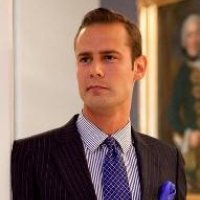The World Island: Eurasian Geopolitics and the Fate of the West
Alexandros Petersen, Advisor, European Energy Security Initiative, Woodrow Wilson Center and Senior Fellow, Eurasia Center, Atlantic Council
Book details:
Both a historical analysis and a call to arms, this is the comprehensive policy guide to understanding and engaging the geopolitics of Eurasia.
Sir Halford Mackinder, the father of geopolitics, argued that the power that controls Eurasia controls the world. How can the West ensure that the struggle for this fundamental theater in world politics is resolved in favor of Western democratic governance—without the autocratic domination of Eurasia?
The 20th century was dominated by three visions of Eurasian geopolitics: "The World Island," "Containment," and "Prometheism." The World Island: Eurasian Geopolitics and the Fate of the West posits a fourth vision of Eurasian geopolitics: the 21st-century Geopolitical Strategy for Eurasia.
Through an original and comprehensive analysis and synthesis of the ideas of Sir Halford Mackinder, George Kennan, and Jozef Pilsudski, this title reestablishes fundamental Western strategy objectives. It analyzes the state of and potential for Western engagement with China, Afghanistan, Turkey, Russia, and other Eurasian states and sets out what is at stake for the West in the Eurasian theater. Promoting a robust strategy to further and protect essential Western values, the author argues for the development of trade and energy links, coupled with the promotion of good governance and the facilitation of policy independence, integration, and Western-orientation among the Eurasian nations.
Speaker

Hosted By

Global Europe Program
The Global Europe Program is focused on Europe’s capabilities, and how it engages on critical global issues. We investigate European approaches to critical global issues. We examine Europe’s relations with Russia and Eurasia, China and the Indo-Pacific, the Middle East and Africa. Our initiatives include “Ukraine in Europe”—an examination of what it will take to make Ukraine’s European future a reality. But we also examine the role of NATO, the European Union and the OSCE, Europe’s energy security, transatlantic trade disputes, and challenges to democracy. The Global Europe Program’s staff, scholars-in-residence, and Global Fellows participate in seminars, policy study groups, and international conferences to provide analytical recommendations to policy makers and the media. Read more


History and Public Policy Program
A leader in making key foreign policy records accessible and fostering informed scholarship, analysis, and discussion on international affairs, past and present. Read more
